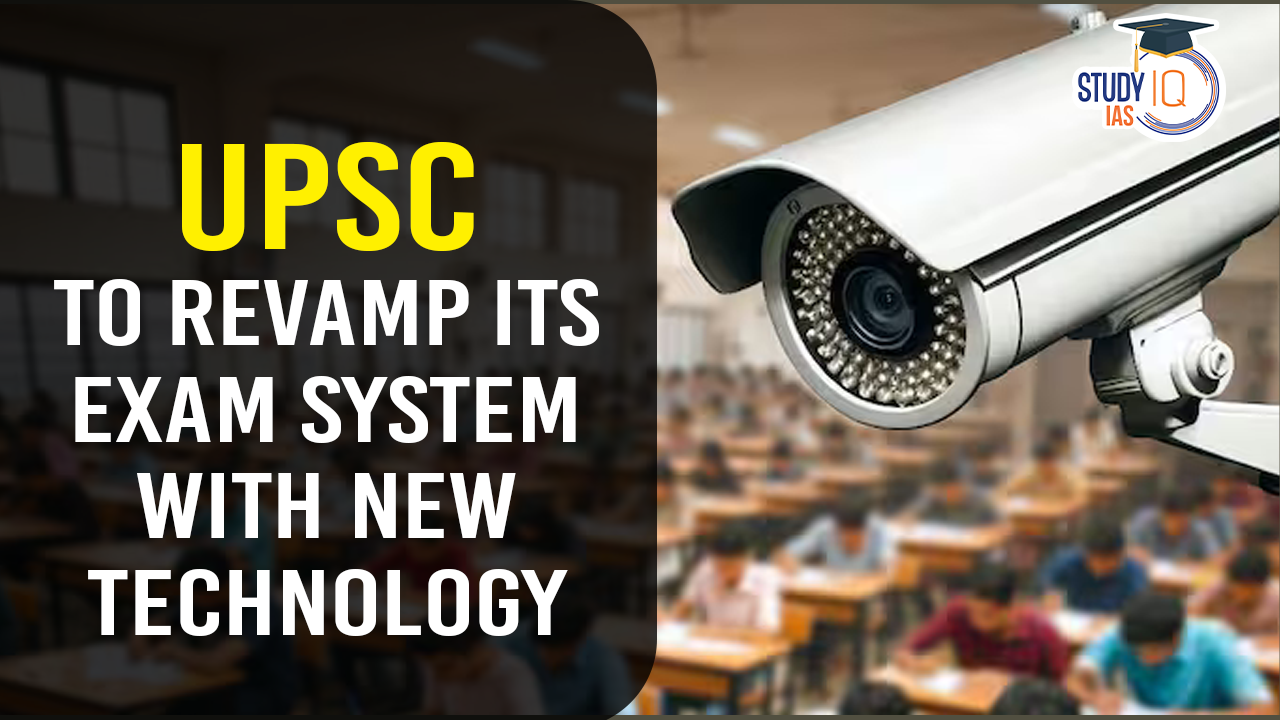Table of Contents
In an effort to bolster the integrity and security of its examinations, the Union Public Service Commission (UPSC) has announced a major overhaul of its exam system. This decision comes in response to recent controversies and allegations of cheating, notably the case involving trainee IAS officer Puja Khedkar. The UPSC plans to integrate advanced technological solutions to ensure fair and transparent examination processes.
Background and Need for Change
The UPSC, a constitutional body responsible for recruiting candidates to high-ranking government positions, conducts 14 major examinations annually, including the highly competitive Civil Services Examination (CSE). With over 1.01 million applicants in 2023 alone, maintaining exam integrity is crucial.
Recent controversies, including the Puja Khedkar case, have highlighted vulnerabilities in the current examination system. Khedkar allegedly used forged documents to exceed the number of permissible attempts for the CSE, leading to a criminal case and a show cause notice from the UPSC. Additionally, lapses in the National Eligibility cum Entrance Test (NEET) 2024 have further underscored the need for enhanced security measures.
Proposed Technological Upgrades by UPSC
To address these issues, the UPSC has outlined several key technological upgrades:
- Aadhaar-Based Fingerprint Authentication
- Objective: To verify the identity of candidates through digital fingerprinting.
- Implementation: Fingerprint scanners will be deployed at examination centers to match candidates’ biometric data against records submitted during the online registration process.
- Facial Recognition Systems
- Objective: To ensure accurate identification and prevent impersonation.
- Implementation: Facial recognition technology will be used to compare candidates’ live images with those submitted during registration.
- AI-Driven CCTV Surveillance
- Objective: To monitor examination activities in real-time and detect any fraudulent behavior.
- Implementation: CCTV cameras equipped with AI will be installed in examination rooms, entry and exit points, and control rooms. These cameras will provide live streaming and recording capabilities for continuous monitoring.
- QR Code Scanning for e-Admit Cards
- Objective: To streamline the verification process and prevent tampering.
- Implementation: Each e-Admit Card will feature a QR code that, when scanned, will automatically retrieve candidate information from the application database. If scanning fails, roll numbers will be manually entered.
- Real-Time Attendance Monitoring
- Objective: To ensure that candidates are enrolled in the correct examination shift and location.
- Implementation: GPS coordinates will be used to verify that candidates are present at the designated exam center during their scheduled time.
Tender and Implementation
The UPSC has issued a tender inviting bids from public sector undertakings (PSUs) to provide the required technological services. The tender specifies that bidders must be profit-making entities with a substantial annual turnover from examination-related projects. The selected service provider will be responsible for installing and maintaining the new systems across all examination centers.
Expected Impact of Changes
The integration of these technologies is expected to:
- Enhanced Examination Integrity
- Reduced Fraud and Impersonation: Aadhaar-based fingerprint and facial recognition technologies ensure only registered candidates take the exam.
- Cheating Prevention: AI-driven CCTV surveillance deters and detects cheating.
- Improved Efficiency
- Streamlined Verification: QR code scanning speeds up candidate entry and verification.
- Real-Time Monitoring: AI CCTV provides immediate oversight, addressing issues promptly.
- Increased Transparency
- Accurate Tracking: GPS-based attendance monitoring confirms candidates’ presence and timing.
- Detailed Records: Comprehensive logs of biometric and video data support transparency and dispute resolution.
- Enhanced Security
- Comprehensive Surveillance: CCTV cameras monitor all examination areas, including entry points and control rooms.
- Remote Monitoring: Centralized live viewing of CCTV footage strengthens overall security.
- Boosted Confidence
- Trust in System: Advanced measures reinforce public confidence in examination fairness.
- Deterrence of Malpractices: Robust security measures discourage attempts at fraud.
- Operational Challenges
- Initial Implementation: Technical issues and integration challenges during the rollout.
- Cost Considerations: Significant financial investment required for technology deployment.
Conclusion
The UPSC’s decision to revamp its examination system with advanced technology represents a significant step toward ensuring a fair and transparent recruitment process. By leveraging Aadhaar-based fingerprinting, facial recognition, AI-driven CCTV surveillance, and QR code scanning, the UPSC aims to address existing vulnerabilities and uphold the highest standards of examination integrity. As the commission moves forward with this initiative, it is poised to set a new benchmark for examination security in India.


 Great Indian Bustard (GIB), Features and...
Great Indian Bustard (GIB), Features and...
 List of Military Exercises of India 2024...
List of Military Exercises of India 2024...
 Hantavirus: Causes, Symptoms, Transmissi...
Hantavirus: Causes, Symptoms, Transmissi...





















